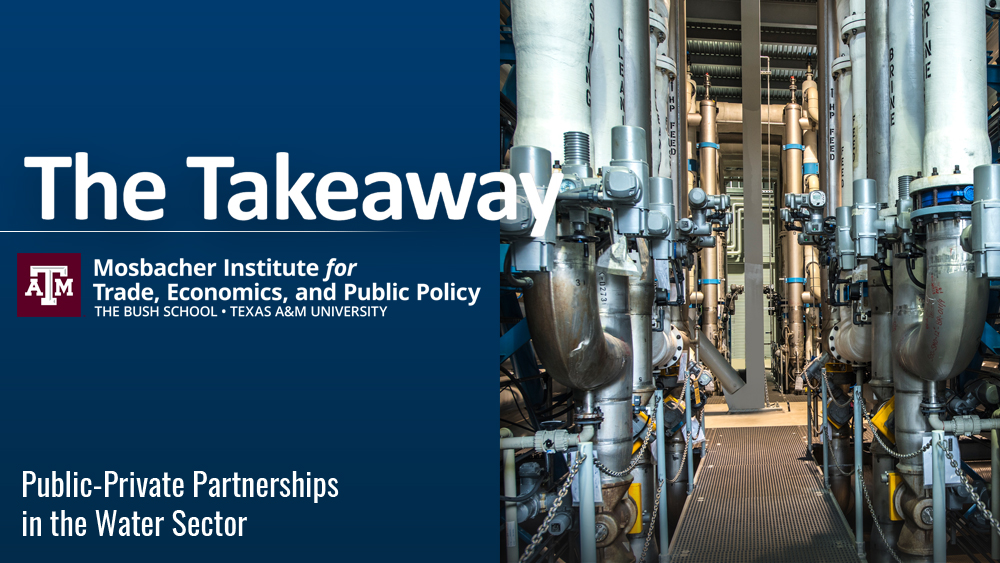
The latest issue of The Takeaway looks at the use of public-private partnerships in large-scale water infrastructure projects such as desalination.
Public-private partnerships (PPPs) have grown in popularity as a method to leverage private-sector actors in the production of government services. With the global challenge of water insecurity, PPPs are becoming more common for large-scale water infrastructure projects such as desalination. Desalination facilities are complex and expensive operations, which means that understanding the appropriate context for PPPs is increasingly important.
In “Public-Private Partnerships in the Water Sector,” Dr. Robert Greer and Lindsey Pressler describe differences in the financial risks and characteristics of different PPP arrangements. They also identify regional trends in the types of PPP arrangements that are likely to be implemented for desalination projects globally. Greer is a Bush School of Government & Public Service faculty member and a Mosbacher Research Fellow. Pressler is pursuing a Master of Public Service and Administration at the Bush School.
The Takeaway is a publication of the Mosbacher Institute for Trade, Economics, and Public Policy at the Bush School at Texas A&M University.
